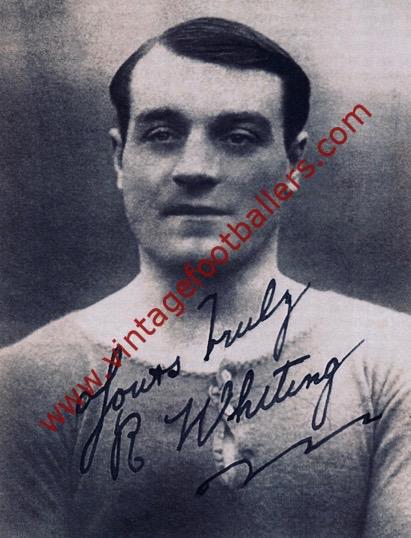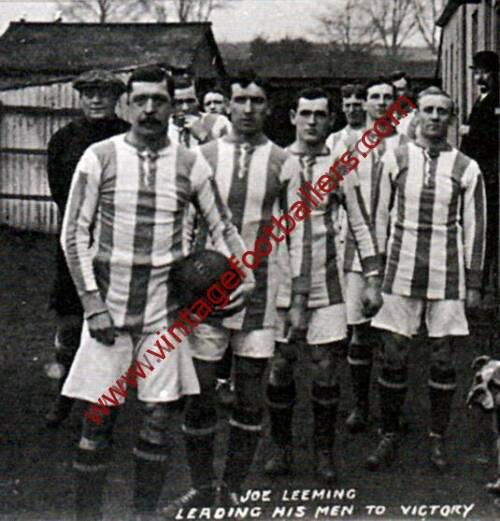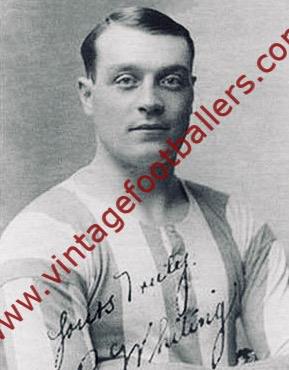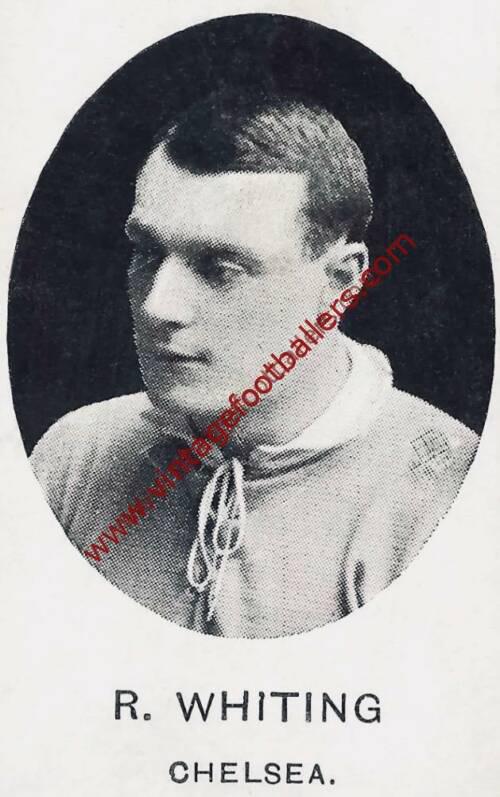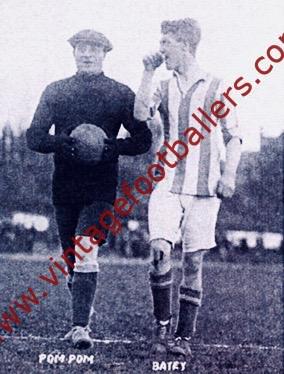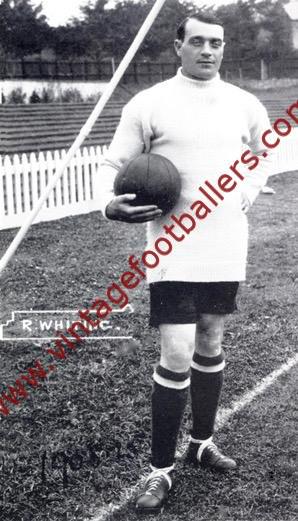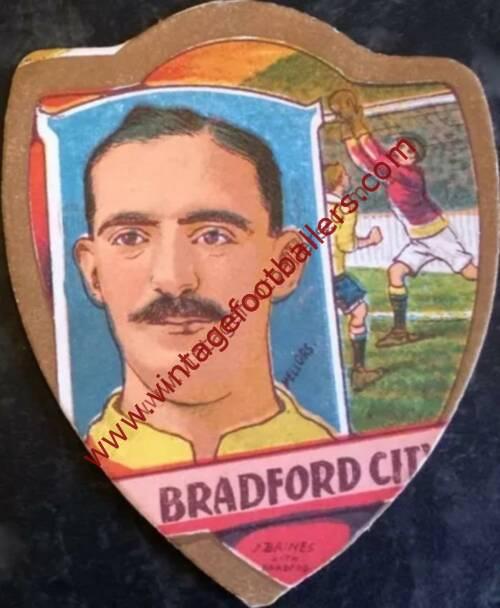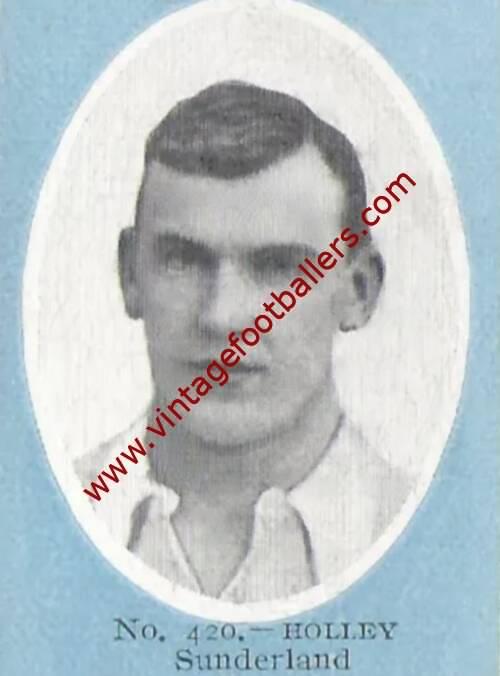Please choose your photo size from the drop down menu below.
If you wish your photo to be framed please select Yes.
Note: 16″x 20″not available in a frame.
Images can also be added to accessories. To order please follow these links
£8.95 – £49.95
Please choose your photo size from the drop down menu below.
If you wish your photo to be framed please select Yes.
Note: 16″x 20″not available in a frame.
Images can also be added to accessories. To order please follow these links
Canning Town, London born goalkeeper Bob “Pom Pom” Whiting began his football career with South West Ham in 1904 and spent 1905 on the books of Southern League club West Ham United without making their first eleven. He joined Kent League club Tunbridge Wells Rangers later in 1905. On 13th January 1906, Whiting played in goal for Tunbridge Wells Rangers in a F.A. Cup tie against Norwich City. Scouts for Chelsea were impressed by his performance and in April 1906 he was signed signed by Second Division club Chelsea, where he was initially understudy to the legendary William “Fatty” Foulke, making his debut at Bristol City in April 1906 as Chelsea missed out on promotion to the First Division, finishing third in their inaugural League season. When Foulke joined Bradford City, Whiting assumed the Chelsea gloves and he was a virtual ever present in 1906-07, missing just two matches as Chelsea won promotion, finishing runners up in the Second Division. But in the top flight he lost his place to Jack Whitley in December 1907 and joined Southern League club Brighton & Hove Albion in the 1908 close season after 54 appearances for The Pensioners.
Whiting was noted for his punched clearances and long distance kicking. It is reported that “on more than one occasion he drove the ball from his goal area to the opposite square – a matter of a hundred yards”. Whiting’s kicking power was compared to the force and range of the military Pom Pom Gun, hence his nickname of “Pom Pom”, which he already had during his time at Chelsea.
It was at Brighton that Whiting spent the rest of his career, making 253 appearances for The Seagulls until the suspension of peacetime football due to the onset of the First World War in 1915. Most notably Whiting helped Brighton win the 1909-10 Southern League Championship when Whiting conceded just 28 goals in 42 matches and also was a member of the Albion team that won the 1910 FA Charity Shield when they beat League Champions Aston Villa 1-0 at Stamford Bridge that September. In the five years that the Charity Shield was contested by the winners of the Football League and Southern League between 1908 and 1912, this was the only occasion on which the Southern League Champions prevailed. The victory remains Brighton and Hove Albion’s only national honour to date. Whiting continued as a regular between Albion’s posts and in 1914, to mark the goalkeeper’s six years with Brighton & Hove Albion, the club planned a benefit match for Bob Whiting, but this was postponed because of the outbreak of the First World War
In December 1914, four months after the outbreak of the First World War, Whiting enlisted in The Football Battalion, The 17th Service Battalion of The Middlesex Regiment. After arriving in France in November 1915, Whiting became infected with scabies at the front and was sent to a hospital in Brighton for treatment. As a result of the discovery of his wife’s pregnancy and the death of his brother on The Somme in August 1916, Whiting went AWOL. He was caught in October 1916 and court-martialled in France in February 1917. A shortage of men meant that his sentence of 9 months’ hard labour lasted just one week before he rejoined The Football Battalion. He was killed in action whilst assaulting a fortified German position at Oppy Wood during The Battle of Arras on 28th April 1917 and is commemorated on the Arras Memorial. Whiting was married with three sons and the second-youngest, William, later followed in his footsteps to play as a goalkeeper for Tunbridge Wells Rangers.
| Weight | N/A |
|---|
